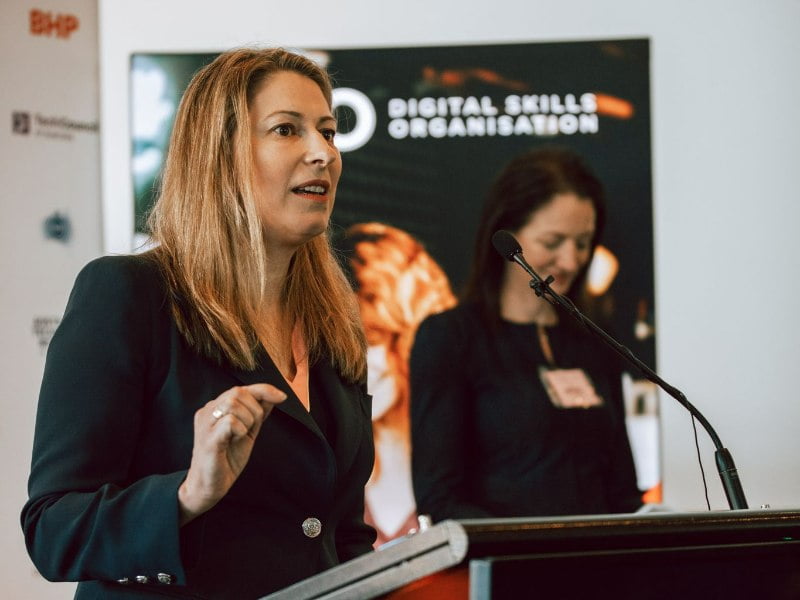The Technology Council of Australia and the Australian Council of Trade Unions have joined forces to champion key training and skilled migration reforms for the tech sector ahead of next week’s highly anticipated Jobs and Skills Summit.
The Tech Council (TCA) signed a Memorandum of Understanding with the country’s largest union in the wake of the Digital and Tech Roundtable last week after reaching consensus on a set of principles.
The agreement outlines “important and achievable changes” the government should adopt to help Australians enter tech jobs and address wider challenges facing the economy following the pandemic.

Tech jobs are considered some of the “fastest-growing, best-paid, most secure, and most flexible in Australia” by the council, which shares the government’s commitment to create an additional 340,000 tech jobs by 2023.
But as the MoU calls out, the country is “experiencing short and long-term skills and workforce pressures related to tech jobs” that stem from training pathways that are no longer fit for purpose and limited skilled migration.
TCA chief executive Kate Pounder said the roundtable hosted last week “made the ACTU and Tech Council realise that we had areas of common ground” and decide to put that on the record going into the summit.
“We know that in Australia, when we’ve made important reforms in the past, those reforms have begun with consensus across a broad group of stakeholders about the outcome that reform needs to achieve,” she told InnovationAus.com.
“And we felt that building on the consensus that already existed with our industry, it was important then to show it is a consensus that extends and also reflects a shared agreement with the union movement.”
The TCA also met with other industry bodies including the Business Council of Australia, the Australian Computer Society, and the Australian Information Industry Association prior to last week’s discussions to talk through the “challenges and opportunities”.
Areas of cooperation focus on reforming the “skills training and immigration systems to the mutual benefit of employer sand employees in the technology sector” using three targeted reforms including the creation of a new Australian Digital Apprenticeship.
The “one-year program of study and work integrated learning” to be delivered through the VET system would focus on “key entry level tech jobs such as cybersecurity analyst, business analyst and data analyst”.
The MoU suggests the government subsidise course costs and provide a wage subsidy to employers, while industry commits to employing a “specific number of apprentices with guaranteed diversity quotas”.
This program would be developed by industry and could be funded through the approximately $40m in contributions that the tech sector makes toward training Australians through the Skills Australians Fund levy,” the MoU states.
Ms Pounder said that with no change in the completion rate for ICT qualifications through the VET system since 2018 and only 40 per cent of people getting a better job because of that qualification, there is a need to develop new qualifications.
“Something is not working there, so that’s why we think that sitting down and designing and modern, high quality digital apprenticeship scheme that takes the best features of the training models that we know are… working,” she said.
“But design them in partnership with industry, government and training providers, to make sure that it works to serve the interest of those Australians who benefit much from those pathways.”
The TCA and ACTU have also asked the government to speed up visa processing times for high-skilled, high-wage tech occupations independently verified as suffering a skill shortage as an immediate pressure-relief valve to support Australian tech companies.
Improved access to tech jobs for women is also flagged, with the pair asking that market research into women’s attitudes towards the field be conducted as a first step, before supporting a dedicated program to allow more women to make the switch.
“We hope that these are ideas that are given serious consideration at the summit, particularly because we do see this consensus forming around them,” Ms Pounder added.
ACTU secretary Sally McManus said that with technology rapidly advancing, and global economies and workforces changing, it is “critical that we invest in skilling and training our workers” to ensure Australia keeps up.
“Every major Australian industry is entwined with the tech sector, and it’s important that for workers to get ahead we work together, are ambitious and get skills, training and wages moving at the upcoming Jobs Summit,” she said.
The federal government has welcomed the agreement the agreement between the TCA and ACTU, with Mr Husic describing it as “tremendous to see this sort of collaboration coming our of our industry roundtables last week”.
“The summit itself will be an opportunity to examine this proposal and determine agreements to pursue further work to bring these and other ideas to life,” he said.
“I look forward to working with all those in the tech sector to reach our goals, including the Australian Computer Society and the Australian Information Industry Association, which have long championed the adoption of digital skills.
Do you know more? Contact James Riley via Email.

